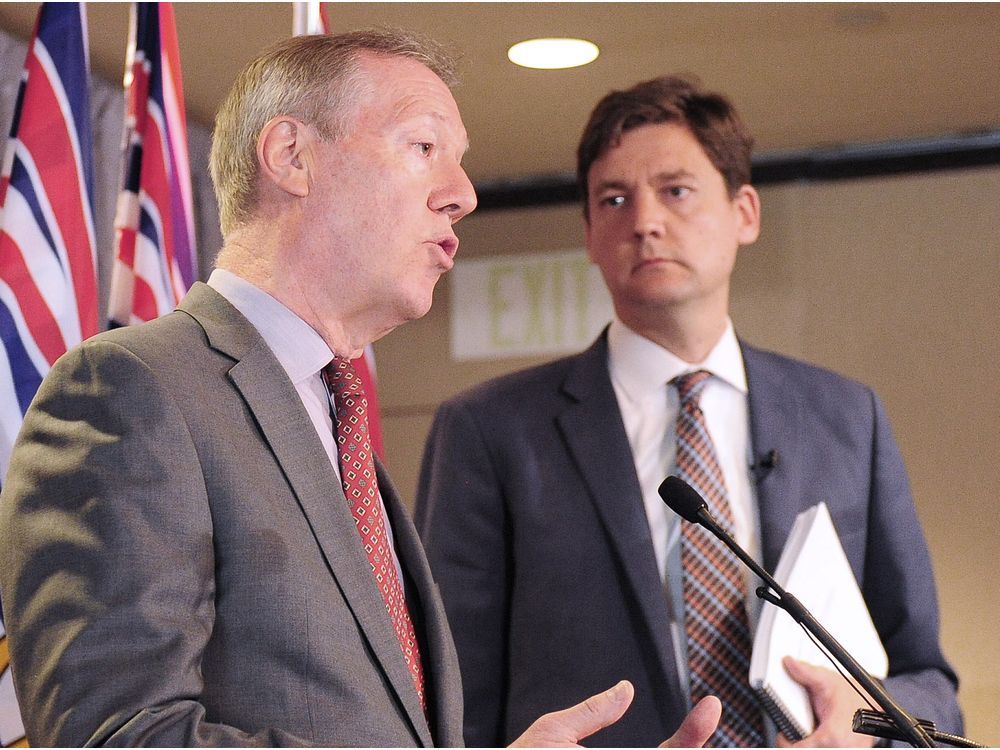B.C. universities move to ban cash payments for tuition

Credit to Author: Glenda Luymes| Date: Fri, 18 Oct 2019 23:46:05 +0000
Almost six months after the B.C. government asked post-secondary institutions to stop taking large cash payments for tuition, many have closed the loophole identified in Peter German’s second report on money laundering.
Contained among the recommendations made by the former senior RCMP officer in May 2019 was concern that B.C. universities and colleges could be vulnerable to money laundering.
The report included an example of a student who went to an unnamed college with a duffel bag containing $9,000 in cash and asked to deposit it.
“Peter German has advised that people are paying thousands of dollars in suspicious cash for multiple semesters in advance and then seeking refunds by cheque,” Attorney General David Eby said at a new conference in May. “Our post-secondary institutions must not be used to launder money, and we are asking them to review their policies to put a stop to it.”
Since then, many of B.C.’s public post-secondary institutions have moved to end the practice, including Thompson Rivers University and the University of the Fraser Valley.
On its website, TRU cited the government’s anti-money-laundering initiative for its decision to ban cash tuition payments in August 2019.
The university “has no reason to believe our cash-acceptance policies have been taken advantage of for the purposes of laundering money,” said the statement. Students can still use cash to pay certain fees, such as application fees and registration deposits, but cash payments are limited to $1,000 per day.
UFV began phasing out cash payments for tuition, student fees and rental housing in September in keeping with “best practices already adopted by many post-secondary institutes in B.C. and across Canada,” said the university’s director of communications Dave Pinton.
Before September, “a very high percentage of UFV students were already paying for tuition using methods other than cash,” he said. Between April 1, 2018, and March 31, 2019, 17 cash payments of $10,000 or more were made, all by separate individuals. The large payments made up about 0.1 per cent of all cash tuition payments.
Pinton said UFV had no indication that any money laundering occurred at its campus.
BCIT also ended cash payments for tuition in August, while both Simon Fraser University and the University of B.C. haven’t accepted cash payments for some time. SFU changed its policy to ban cash in January 2017, while UBC hasn’t accepted cash for more than 10 years.
Several schools are still reviewing their policies. Kwantlen Polytechnic University registrar Zena Mitchell said the university still accepts cash but is “looking at the possibility of moving to a fully online payment model and recently adopted a new online payment method for international students.”
According to its website, Langara still accepts cash payment for tuition, although it’s discouraged.
In a statement, the Ministry of Advanced Education, Skills and Training said it’s tracking compliance at B.C.’s 25 public post-secondary institutions.
As of September, all public post-secondary institutions had responded to a request for information about cash- acceptance policies, and all institutions either had a cash-acceptance policy or were developing one.
“The ministry is looking at options to set new requirements for institutions to help ensure consistency, so the post-secondary sector is not vulnerable to money laundering,” said the statement.